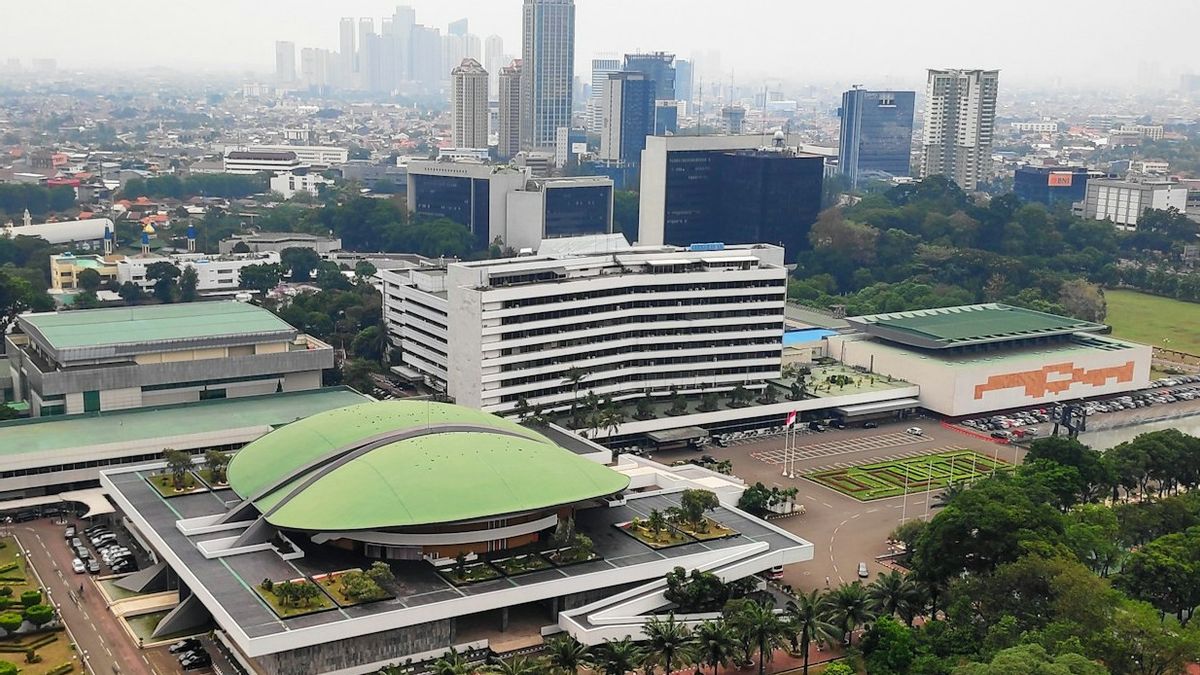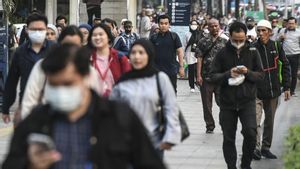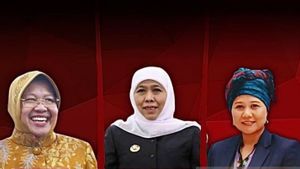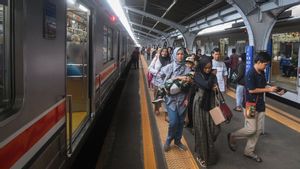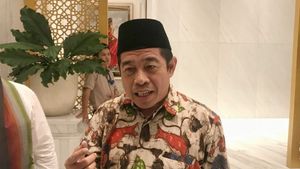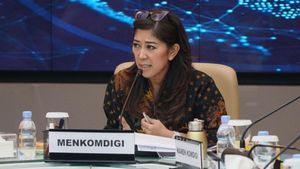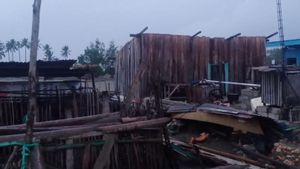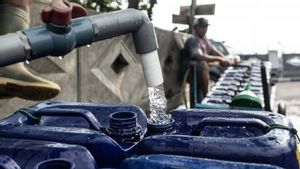JAKARTA - The Indonesian House of Representatives highlighted the licensing for the operation of the Palm Oil Factory (PKS) PT Pulo Padang Sawit Permai (PPSP) which is suspected of harming the surrounding community. This follows a number of activists who were arrested during a demonstration against PKS.
Commission IV of the DPR asked the Government to ensure that all PKS permits are in accordance with the mechanism, especially regarding AMDAL permits (Analysis of Environmental Impacts). The DPR also emphasized the issue of justice for the community.
"We ask the Government to see and ascertain whether all PKS requirements have been met, contained in terms of AMDAL. We must also see the principle of justice for the community, not to let factory operations harm the community," said Member of Commission IV DPR, Daniel Johan, Monday 9 September.
The problem started with the establishment of an oil palm factory which was considered disturbing the community in Pulo Padang Village, North Rantau District, Labuhanbatu Regency, North Sumatra. The public admitted that they did not initially know that the factory would build the land, because the information was that the construction was for public housing.
The factory is in the middle of residential areas, precisely in addition to school buildings so that it often interferes with community activities and convenience. From the results of the research, it is also known that the impact of the PKS has caused palm oil waste to be polluted by residents' wells and river flows.
Not to mention that PKS causes air pollution due to factory smoke, noise, and disrupts the comfort and security of school students so that residents and elements of society get rejected. Daniel said that in plain view the palm oil factory did cause unrest.
"So it is very important to evaluate thoroughly from the operation of the palm oil factory. The government and law enforcement must be neutral, if the operation of factories destroys the environment, threatens nature sustainability, and has a bad impact on the local community, it should be dealt with. It's not precisely the people who demonstrated to be arrested," he said.
SEE ALSO:
On Monday, May 20, 2024, a number of residents together with elements of society held a demonstration against the operation of PKS PT PPSP. Law enforcement officers also arrested a female activist named Tina Rambe along with three students and two other members of the community.
Tina is known to have loudly voiced the rejection of PKS owned by PT Pulo Padang Sawit Permai (PPSP) in her neighborhood. He insisted that the presence of the palm oil factory would cause air pollution, especially adjacent to kindergarten, elementary, junior high, high school schools.
Of the three people arrested, two of them have received a suspension of detention. Only Tina Rambe is still in custody, and is currently submitting a pretrial hearing but there has also been no decision from the court.
Seeing this, Daniel asked law enforcement to conduct the fairest possible examination. There must be a clear reason why Tina's detention was not suspended, and why the pretrial has not yet been decided. Tina was named a suspect in the alleged case of resistance against the authorities when it was for citizens' rights related to rejection of PKS operations.
"The public has the right to express their opinions regarding the environmental and social impacts of large projects," said Daniel.
"We hope that the Tina Rambe case will also be resolved as the other two people. It must be clarified why Tina Rambe has not yet received a suspension of handling," continued the legislator from the West Kalimantan I electoral district.
For information, this problem has occurred since 2017 where people continue to demand justice to relocate palm oil factories that are considered disturbing the community and polluting their environment. Since 2017, rejections have often occurred, but from the PT PPSP, it is considered that rejection occurs only from a handful of people so that their voices are not heard.
People often take actions to boycott by holding vehicles carrying palm oil so that factories do not operate. However, the action only works for a while and continues to repeat without common ground.
According to information from PT PSSP, they are ready to install sound damping in schools that are affected by parbik noise. It's just that people still don't accept it and they just demand factory relocation. Daniel said problems like this often occur.
"There are actually many social problems with palm oil factories with the community and often occur in various regions. There are also many legal issues, and there are not a few allegations of criminalization," he said.
"So it must be ensured that law enforcement is carried out transparently. Don't let anything be covered up or the community gets unfair treatment. No community should be criminalized just because they are against big corporates. Law enforcers must be neutral," added Daniel.
Commission IV of the DPR in charge of plantation and environmental affairs also emphasized that law enforcers should pay attention from the regulatory side to the operation of palm oil factories. Because, said Daniel, the community must have a reason for rejecting it.
"Has the company's licensing process met applicable environmental standards? Don't let it be one-sided and there is different treatment so as to raise public suspicion. Make sure there is no criminalization of the people," he said.
Daniel said that Tina's arrest raised serious questions about how people's rights express opinions. He also highlighted the guarantee of human rights (HAM), including in expressing opinions regulated in the constitution.
"When the arrest must also be seen whether or not the procedure for his arrest is correct. Law enforcement must respect human rights, including the right of the public to participate in the decision-making process that affects their environment and lives," said Daniel.
The English, Chinese, Japanese, Arabic, and French versions are automatically generated by the AI. So there may still be inaccuracies in translating, please always see Indonesian as our main language. (system supported by DigitalSiber.id)
